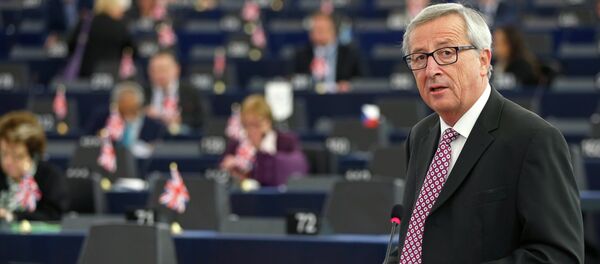Jyrki Katainen, EU Commissioner for Jobs, Growth, Investment and Competitiveness announced, November 29, the extension of the Investment Plan for Europe, hailing it as having been a success so far, plowing US$163 billion into new investments into 151 large-scale infrastructural projects.
The Investment Plan has mobilised €154 billion in investments across the EU. 60% of the investments come from private investors. #investEU
— Jyrki Katainen (@jyrkikatainen) November 29, 2016
One of the main strings of the plan is the European Fund for Strategic Investments (EFSI), run by the European Investment Bank (EIB), is to provide public support for projects that are economically viable, but would not otherwise happen because private investors are hesitant to finance them due to the uncertain economic situation and the higher risk involved.
In her analysis of the EFSI scheme, November 15, the Chair of the European Parliament's Budgetary Control Committee, Ingeborg Grässle, reproached the European Commission over its "naive enthusiasm" over the EFSI saying:
"We need to know what has happened and what has not happened with EU money. It is unacceptable to tell taxpayers that we have lost money, but we learnt a lot".
Looking after EU taxpayer's money in the meeting between @EP_BudgControl and the @EUAuditorsECA with @inge_graessle pic.twitter.com/WbLzOB1fta
— Petri Sarvamaa (@petrisarvamaa) 14 November 2016
No 'Black Hole'
The "financial instruments" — assets that can be traded, cash or otherwise, real or virtual — "aim to put EU funds to good and efficient use, ensuring that grants are complemented by other financial products so that EU funding can be used time and time again in a revolving fashion", according to the European Investment Bank.
Europe bringing results: investment plan has mobilised €154 bn + 380, 000 SMEs can already benefit #investEU #EFSI pic.twitter.com/uhw7CEpEVF
— EU Economy & Finance (@ecfin) November 30, 2016
Nicholas Martyn, the Deputy Director-General for Regional and Urban Policy at the Commission, said that financial instruments were as carefully scrutinized as other operations and that they were "not a black hole where we don't know the risks. We cannot afford not to use financial instruments".
However, Mihails Kozlovs, the Member of the European Court of Auditors responsible for the opinion, dismissed the claims, saying: "The Commission is planning to extend EFSI just one year after its launch. This is a considerable change compared with the original timeline. It is still too soon for the economic, social and environmental impacts to be measured or for a conclusion to be drawn as to whether EFSI is achieving its objectives."



